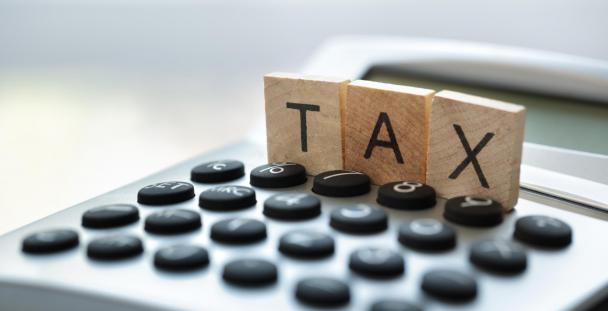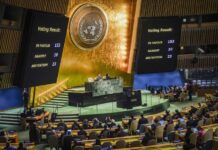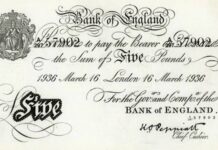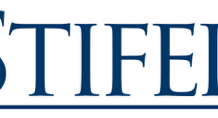
By Marc Ovits
When a gang of tax fraudsters was ordered to pay back more than £2m last week, HM Revenue & Customs was jubilant. After a five-year investigation, it had cracked a scam which used fake invoices to claim tax rebates for film projects. The authority boasted that however far criminals went to hide their ill-gotten gains, it would “pursue every penny to ensure that tax crime never pays”.
The rhetoric is a sign of the waning tolerance of tax cheats of any kind. After years of criticism from MPs over the huge sums — estimated at more than £11bn a year — lost to tax evasion and the hidden economy, HMRC has come under intense pressure to show it can be tough. It is fair to say the risk of being found out has never been higher.
Here are 10 ways — some high-tech, some very traditional — that HMRC can use to check if you are cheating.
- Joining the dots
At the heart of HMRC’s counter-evasion efforts lies a powerful computer program called “Connect”. Launched in the summer of 2010, it sifts vast quantities of information — more even than the data stored in the British Library — in its hunt for underpaid tax.
It ploughs through disparate, previously unrelated information to detect otherwise invisible networks of relationships. It automates analysis that would once have taken months, if it could have been done at all.
HMRC does not divulge all the sources of information it feeds into Connect, but it is thought to include details of bank interest, credit card data and Land Registry reports.
In an example of an early success involving Connect, HMRC analysts identified a string of credit card transactions associated with a private London residence. The property was worth millions of pounds and was owned outright by someone with no tax history and a state pension as their only source of visible income. A routine internet search found advertisements for an recruitment agency at the address. After an HMRC investigation the owner admitted trading there for at least six years, with takings of more than £100,000 a year.
HMRC has been energetically extending its data gathering powers. It recently acquired the right to force apps and platforms such as Apple, Amazon and Airbnb to hand over data — including names and addresses of sellers and advertisers — that would help it identify tax-evading businesses. Payment providers such as PayPal are another new source of data. Money services businesses, such as currency exchange services, are the next on the list, according to a recent consultation.
The tax authority insists that its new powers have no implications for individuals’ privacy, as it is only seeking information on business activities. But the Electronic Money Association, which represents companies like eBay, Airbnb and PayPal, worries there are insufficient safeguards concerning the way the data are used. Last year, it said the transfer of personal data to government could have a “profound” impact on consumer trust.
- International co-operation
Ten years ago, there were plenty of palm-fringed islands or Alpine states offering copper-bottomed secrecy to would-be evaders. Anyone with an offshore account could be pretty confident that HMRC would never find it.
That is no longer true. A global crackdown on tax evasion has lifted the lid on offshore secrets. From September, details of bank balances, interest, dividends and certain types of income earned by expats will start to be sent to their home governments wherever they may be. The new rules — known as the “common reporting standard” — will mean that evaders have very few places left to hide.
HMRC has already received some information from offshore centres. Last September it was handed information from the Crown Dependencies and Overseas Territories, which it hopes it can use to raise up to £300m of extra revenues, according to official forecasts.
It has also received information from the US which has moved ahead of other countries in closing its net on offshore tax evaders. Accountants have reported that their clients have seen a number of letters this year from HMRC saying “we understand you have assets in the US” and demanding an explanation.
In a sign of this trend for international co-operation, tax authorities are increasingly working with each other. In a recent example of a cross-border collaboration, Credit Suisse, the Swiss bank, was the subject of simultaneous tax investigations in the UK, France and the Netherlands in March.
- Ghosts and moonlighters
HMRC believes it loses billions of pounds every year as a result of undeclared economic activity. Some of the losses it blames on what it describes as “ghosts” — people whose entire income is unknown to HMRC. An even larger share is attributed to “moonlighters” — people known to the tax authority who have sources of income that HMRC does not know about.
It has a multi-pronged approach to tackling the hidden economy. As well as encouraging recalcitrant taxpayers to come forward, it is seeking new sources of information and investigating other ways of encouraging third parties to help its crackdown.
HMRC has long targeted areas where it believes there might be non-compliance. In the past, it focused on specific trades and professions, such as plumbers, solicitors and doctors. More recently, it has launched campaigns targeting specific types of income that might be relevant to big swaths of the population, such as buy-to-let rental income and income from second occupations.
It is also eyeing a valuable new weapon in its efforts to bring untaxed activities out of the shadows. Local authorities are increasingly demanding that landlords have their properties licensed in an attempt to address poor property management. That helps HMRC because it creates a searchable public register of people who are renting out properties.
It wants to go further, though, by making registration for tax a condition of acquiring a licence. That could extend beyond property letting to include activities such as taxis and planning.
It has also proposed tougher sanctions for those involved in the hidden economy. This would include additional tracking and improved monitoring of taxpayers with a history of non-compliance, and strengthening the penalty regime where an immigration offence is also committed.
- Fear and guilt
HMRC has long used a combination of carrots and sticks to persuade people to come forward. The carrots include an innovative series of disclosure facilities which offered reduced penalties and — in some cases — a promise of no prosecutions to people who settled up. Those days have now gone and HMRC is coming down hard on evaders.
It is increasingly wielding a threat of tougher penalties and more prosecutions. In 2015, HMRC was given a target to triple to 100 the number of prosecutions of wealthy individuals and corporates made each year by 2020. Anyone who has failed to correct previously undeclared UK tax liabilities in respect of offshore interests by September 2018 will pay a penalty of up to 200 per cent of the tax and 10 per cent of the value of the asset.
There is also a new “strict liability” offence for offshore tax evasion involving at least £25,000 even if there is no evidence that the taxpayer intended to evade the tax.
HMRC is also “naming and shaming” individuals who evade more than £25,000 in tax. It publishes lists on its website every three months that include the person’s name, address, nature of business, period covered by the evasion, amount of evaded tax and the penalty for that evasion.
- Informants
In April, HMRC launched a new hotline to allow the public to report evasion and tax fraud. The service, which combined two pre-existing hotlines, now covers any kind of tax fraud and evasion, including PAYE and national insurance, undisclosed offshore investments, tax credit fraud and VAT fraud. It said it received 113,000 reports from the public providing information to the department in its last financial year.
Some informants can expect rewards. HMRC paid more than £460,000 to confidential informants in the year to March 31 2016, according to information obtained from the Revenue by City law firm RPC.
A disgruntled ex-partner is often the snitch. It is quite common for details of offshore accounts to emerge in divorce proceedings, particularly if they are acrimonious.
- Leaks
HMRC has acquired a valuable source of data in recent years from a series of leaks involving offshore centres. One early example was data from HSBC’s Geneva operations, known as the “Lagarde list” which was stolen by a former employee.
The data, containing details of over 100,000 HSBC clients, was later partially made public by the International Consortium of Investigative Journalists. It provided HMRC with extra ammunition to force tax evaders to come clean but it only resulted in a single prosecution, to the fury of MPs. HMRC struggled to find corroborating evidence in addition to the stolen data to mount prosecutions, as well as establish criminal intent.
A far bigger data stash emerged in April 2016, when details — known as the Panama Papers — were leaked from a Panamanian law firm, shedding light on some of the structures used to mask offshore tax evasion and economic crime. In response, the government set up a multi-agency task force to investigate and identify any financial wrongdoing by UK taxpayers. Last November, the government announced it had opened civil and criminal investigations into 22 individuals for suspected tax evasion.
- Small businesses
HMRC says small and medium-sized businesses account for just over half of the tax “gap” — the difference between the amount that is collected and the amount that should be collected. A lot of this is down to inaccurate reporting but there is also deliberate evasion. Some traders will not declare income for cash-in-hand work and some owner-managers charge their personal expenses to the company.
HMRC’s ambitious plans to digitise the tax system is meant to encourage landlords and small businesses to be more accurate in reporting sales and expenses. But it also has other ways of checking up on them.
It can compare a company’s financial results with others in the same sector to spot anomalies that need further investigation. It can also investigate companies that report an abnormally high proportion of customers using credit cards. That might mean it is not properly reporting purchases in cash.
In some cases — such as investigating a restaurant, for example — it might conduct a “mystery shopping” exercise. Inspectors would pose as a customer and later check the meal against the restaurant’s end-of-year books to see whether it had been properly accounted for.
- Social media
Social media provide HMRC with a treasure trove of data. Inspectors are looking for evidence of a lifestyle that is out of kilter with declared income. Several individuals were caught out after appearing in an early episode of the Channel 4 television programme My Big Fat Gypsy Wedding spending thousands of pounds of undeclared income on lavish family weddings.
Online social media plays an important role in investigative work and risk analysis. More investigations are occurring where the inspector had obviously gone through Facebook accounts, LinkedIn and what they are saying on Twitter.
Lavish spending on property renovations and building extensions might also be spotted with the help of the satellite imagery captured by Google Earth.
- Suspicious activity reports
If a bank or professional adviser has any suspicion that a customer might be involved in money laundering or terrorist financing, they are obliged to alert law enforcement agencies. Every year, hundreds of thousands of “suspicious activity reports” (Sars) are filed. Nine out of 10 are filed by banks or other financial institutions, with the remainder from tax advisers, accountants, lawyers, estate agents and others. Since November 2013, Sars data has been transferred to HMRC’s Connect database on a monthly basis.
Tax evasion is an offence under the money laundering rules, so it is no surprise that HMRC pays close attention to these reports. It has been estimated that one in four HMRC investigation cases were triggered by Sars.
- Forcing disclosure
Earlier this year, MPs floated the idea of making the wealthy provide information about their assets. HMRC agreed to think about it and will report back this month. But even if this is a step too far, the department is already tapping new sources of information about rich taxpayers’ structures and wealth.
It will very shortly receive a big tranche of information about the value of cash and other assets held abroad, which will have to be disclosed under the new transparency rules for offshore accounts.
It is also set to obtain more information about UK trusts. They will be affected by new reporting rules which came into force last week, as part of an anti-money laundering directive. As a result, hundreds of thousands of trustees will be required to disclose information about the assets they hold. The move is expected to give officials a wider understanding of the tax liabilities of people connected to a trust.
Advisers are another potential source of information. Early this year, HMRC served notices on about 50 lawyers and tax planners requiring them to divulge details about offshore trusts and companies and their owners, although some firms are set to appeal. The measures are most likely to affect non-doms — residents whose permanent home is abroad — since, unlike most UK residents, they can benefit from offshore tax planning.
More generally, HMRC wants to crack down on accountants, bankers, lawyers and other advisers who enable offshore tax evasion. From the start of this year, anyone who helps others evade paying tax will potentially face fines of up to 100 per cent of the tax they helped evade or £3,000, whichever is highest.
This move — along with other new powers and information sources — amounts to a significant increase in the tax authorities’ firepower — and there may be yet more to come.
Marc Ovits is the owner and Managing Director of Alpha Wealth Management Limited. Drawing on over twenty years’ experience in financial services, Marc helps private clients, businesses, charities, and trusts optimize their finances. He is a Chartered Financial Planner providing ‘Independent’ financial advice. Prior to being a financial adviser, Marc was a Director at several global investment banks, providing investment advice to Europe’s leading institutional investment and pension fund managers. For advice on inheritance, investment, protection, or retirement planning, please contact Marc on 020 8203 6920 or 07866 503 898 or marc@alphawm.co.uk.

























